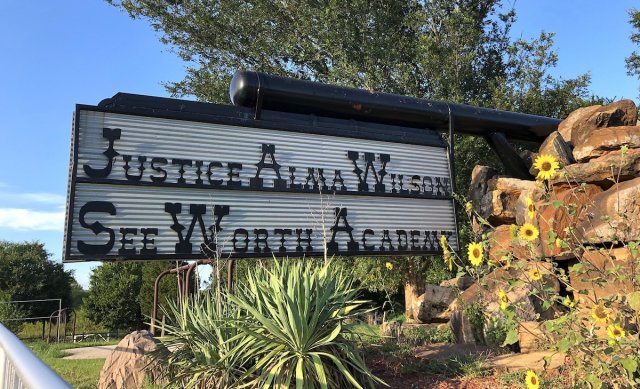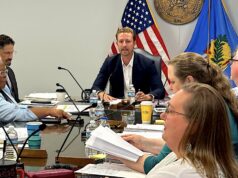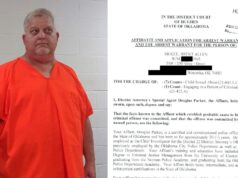
Six weeks before agreeing to relinquish its charter and close, the board of an Oklahoma City alternative school for at-risk youth held a special meeting and quickly voted to remove one of its members: pastor and human resources professional Greg Dewey.
Eighteen days earlier, Dewey had emailed a series of concerns and questions about school financial oversight to his six fellow Justice Alma Wilson Seeworth Academy board members, including Oklahoma Court of Civil Appeals Judge Barbara Swinton and State Sen. Kay Floyd (D-OKC).
“These issues are not going away and I am very concerned with where this is all heading,” Dewey wrote in an April 4 email obtained by NonDoc from a third party.
On April 22, however, Dewey was the one going away, walking into the 6 p.m. meeting at its scheduled time only to hear the end of his removal from the charter school’s board. Moments later, the meeting adjourned.
Dewey, who also serves on boards for City Care, Remerge and other OKC entities, confirmed his email’s authenticity and other details in this story. He initially said he preferred not to comment on the drama surrounding Seeworth Academy, an alternative school founded in 1998 to serve primarily at-risk youth with connections to the juvenile justice system.
Named after former Oklahoma Supreme Court Justice Alma Wilson, the school became a charter authorized by OKCPS. Charter schools are public schools that receive taxpayer funding, feature their own governance boards and retain responsibility to meet proper state and federal reporting requirements.
At Seeworth Academy, such requirements were not being met, and at least three people who questioned the school’s oversight lost their positions either on the board or within the school’s administration.
“It was the board’s responsibility to oversee the operations of Seeworth Academy,” Oklahoma County District Attorney David Prater said Thursday. “If they had any reason to believe that public money was being misused, misappropriated, embezzled or stolen, they had the duty to report immediately.”
Fearing retaliation, ‘whistleblower’ emailed Swinton on March 4
Greg Dewey’s April 4 email was not the first note of fiduciary concern received this spring by longtime Seeworth board member Barbara Swinton.
On March 4, independent contractor Shari Rodgers emailed Swinton a letter that requested protection under the Oklahoma Whistleblower Act and asked for the board to review accounting processes overseen by Janet Grigg, Seeworth’s superintendent.
Additional timeline
Seeworth Academy• On May 2, the Oklahoma State Department of Education sent a letter to longtime Seeworth Superintendent Janet Grigg saying the agency had discovered “gross neglect and noncompliance with both state and federal laws.”
• On May 31, the Seeworth board voted to relinquish its charter effective June 30.
• Over the summer, a battle between the Seeworth board and OKCPS ensued over where the 400-plus effected students would attend school for the 2019-2020 academic year.
• On Aug. 22, the Oklahoma State Board of Education requested a forensic audit from State Auditor and Inspector Cindy Byrd.
“I request protection under the Whistleblower Act and am gravely concerned about this reporting and being retaliated against,” Rodgers wrote. “It is in the best interest of the Board of Directors, on behalf of the students and staff, to investigate the following.”
Rodgers specifically identified “cash handling and depositing procedures” as an area of concern and encouraged Swinton to have the board seek “confirmation that the Seeworth Academy Corporate Account, signore Executive Director Janet Grigg, is used in accordance to the Board of Directors’ intent and in accordance with federal and state regulations.”
On March 10, Swinton replied to Rodgers’ email.
“Thank you for your concerns about the financial health of Seeworth,” wrote Swinton, then board president. “These concerns were addressed by our board with our accountants and you should not have any concerns that the funds are being mishandled.”
One month later on April 9, Rodgers was alerted by Grigg that her contract for the year was ending early.
“Most concerning to me was that I was also told I could no longer volunteer as a certified diabetes care assistant either,” Rodgers said. “I can’t tell you how important it is and how conflicted I am by this. Sometimes I think it’s just something small to this. But then it gets worse and worse and worse.”
Swinton: Despite 2012 lawsuit, ‘never had any reason’ to doubt Grigg
Asked how the school she helped oversee for 17 years fell apart in 2019, Barbara Swinton said she “can’t remember the chronology” of the communications she received from Rodgers, Dewey and others concerned about the school’s financial picture.
“It was just kind of the perfect storm of coming to the end of a three-year charter school auditing timeframe and finding out after May 1 — once we were notified by the State Department of our reporting deficiencies — that we had a problem with our longtime director who we trusted and believed was still doing a great job,” Swinton said. “And it turns out that she had been having difficulty and had hired people and put them in place of the reporting requirements that really just weren’t qualified.”
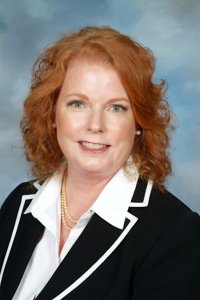
Swinton said the Oklahoma State Department of Education’s May 2 letter about federal program reporting “got the ball rolling.”
“We as a board had trusted our accountants and auditors to tell us if there were problems and trusted our longtime director because we had never had any reason not to,” Swinton said.
But Swinton, Floyd and three other Seeworth Academy Board members — Lee Ann Wilson, John Mayfield and Beverly Patchell — had heard concerns about Janet Grigg and the school’s finances before.
In 2012, former Seeworth principal Mongo Allen filed a federal discrimination lawsuit against the school and its board. In the suit, Allen noted concerns that Grigg may have been “using Seeworth’s federal funds for personal use.” He alleged that Grigg had asked him “to shred receipt books used for recording the sale of t-shirts and concessions for Seeworth” in 2009.
Allen, who is black, also alleged that Grigg, who is white, had treated minority employees differently than white employees. Allen said he detailed his concerns to a consultant hired by the Seeworth board and also attempted to speak with board members directly on multiple occasions. Ultimately, Allen said he was told by Grigg that his contract had not been renewed, according to court documents.
Asked about Allen’s allegations against Grigg almost a decade later, Swinton declined to discuss the situation.
“I don’t think it would be proper to respond to that because it was litigation and it was resolved back then,” Swinton said.
Floyd said she did not remember the specifics of Allen’s lawsuit and did not recall allegations related to document shredding or misuse of funds.
“I never heard that,” Floyd said. “That would have stuck out in my mind. I would tell you that any action with employees, we had a policy handbook. Our policy was set forth, and when something was brought to the board, we followed the policies set forth in our handbook.”
Rodgers: ‘I don’t think that they supervised her’
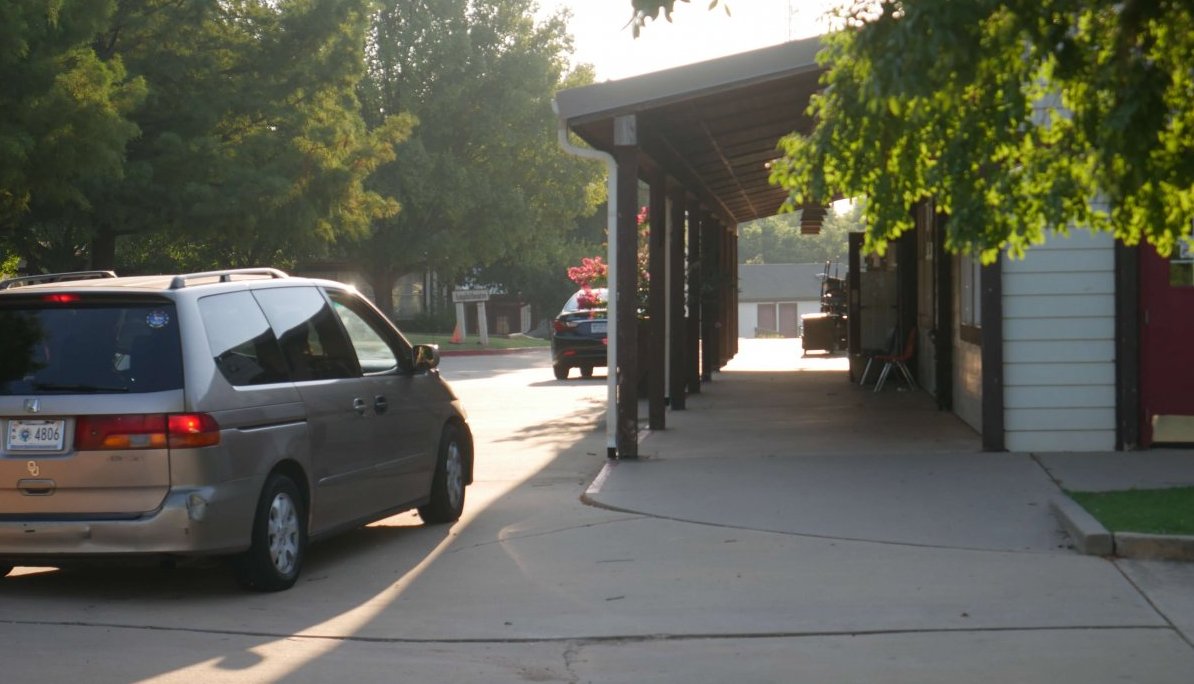
Shari Rodgers worked at Seeworth Academy when Mongo Allen’s contract was ended and said his situation showed how the board placed too much trust in Grigg while ignoring concerns from those who worked in the school.
“First of all, I don’t think that they supervised her. It’s my understanding that board members hold a responsibility to provide a different type of leadership. Not necessarily the day-to-day management of a school, but they are responsible to evaluate and to provide that structure of accountability,” Rodgers said. “They knew board minutes were not being posted to the website. They knew budgets were not being posted to the website. They knew there was an air of non-transparency at the school. They knew they had built a structure where one person was in charge.”
One of Rodgers’ primary motivations for writing her March 4 letter to Swinton — who performed the marriage ceremony for Rodgers and her husband, Tarrence, also a former Seeworth employee — was that Grigg held multiple job duties that left employees without other options for expressing concerns.
“From what I was told by cash-handling staff, there were no checks and balances in place regarding fiscal transactions,” Rodgers said. “The board provided Ms. Grigg the power to be the executive director, the chief financial officer, the human resources director and to be in charge of typing up board minutes.”
Rodgers emphasized that she was not trying to be negative in her assessment of Seeworth Academy, just honest.
“The board had the right to create this school the way they wanted to, but it came with ramifications because staff did not have a way to take care of issues,” Rodgers said.
Swinton noted that the Seeworth Academy board eventually terminated Grigg’s employment in June after moving to shut down the school. Historically, she said, the board had intentionally left other decisions up to Grigg, such as Rodgers’ contract.
“I think her contract was not renewed by the superintendent, and that was one of those things that we did not — as a board — get involved with (in terms of) staff hiring and firing,” Swinton said. “So any employment issues would have been delegated to the superintendent while she was there.”
Asked whether she forwarded Rodgers’ March 4 whistleblower letter to other board members, Swinton said she could not remember whether she had or whether it had just been discussed during the March 27 board meeting, 17 days after Swinton told Rodgers she “should not have any concerns.”
Floyd told NonDoc she never received the March 4 letter and did not know how Rodgers’ employment ended.
In his April 4 email, Dewey expressed frustration about having only heard of Rodgers’ letter to Swinton from “a non-board member.”
“If I am being left out of meetings it would sure be nice to know. I wasn’t aware of Shari’s complaint until we had already responded before the board meeting,” Dewey wrote.
Dewey also asked his fellow board members about other allegations.

“And what is this about allegations of ghost employees receiving money or benefits? As an HR professional this is very concerning but also very easy to know,” Dewey wrote. “At my office I could easily disprove in an hour. Are we absolutely certain there is no concern here? And not just that we like and trust Janet on both of these issues. Do we know the facts? I understand that we have retained counsel and he may be advising, but I also know that he is not the fiduciary for Seeworth. That is the board’s responsibility.”
Asked why Dewey was voted off the Seeworth Academy board 18 days after sending his email, Swinton chose her words carefully.
“Allegations were made that confidential information had been disclosed, and because we had had another prior board member [who revealed private information], we believed that it was in the best interest of the board to move quickly and avoid any further disruption from the board standpoint,” Swinton said.
Dewey, who initially asked not to be quoted for this story, said Thursday that he was given a different explanation after the board voted to remove him.
“That is the first I have heard anything about confidential information,” Dewey said. “I was read a bylaw out of our bylaws that said that I could be removed if I no longer had the students’ best interest at heart. I thought I did have that, but that was the only reason offered up.”
Floyd did not attend the April 22 meeting where Dewey’s membership was terminated, and she said she could not recall Dewey’s April 4 email. She said she did not know why Dewey was no longer on the board.
“I don’t remember much of that at all,” Floyd said. “We were in (legislative) session, and I remember telling him that the board meeting was scheduled, and I said I can’t be there. I have a conflict.”
Rodgers, who was completing her masters of education when she developed concerns about Seeworth’s accounting practices, said she still does not know why Swinton and the board took no action regarding her March 4 letter.
“I just feel like they didn’t want to talk to me because they didn’t want to hear my concerns, and I don’t know why,” said Rodgers, who remains a contract employee evaluating federal programs for OKCPS and is currently pursuing her doctorate.
OKCPD report filed alleging embezzlement, timeline unclear
Floyd spoke with NonDoc the afternoon of Tuesday, Sept. 17, and Swinton conducted her interview around 11 a.m. Wednesday, Sept. 18. Both former Seeworth board members said they had heard allegations that Grigg may have had a gambling problem.
Asked Tuesday whether the Seeworth board had turned over any information to law enforcement for criminal investigation, Floyd said she could not say.
“I can assure you that if we had concerns, we would have turned it over to law enforcement,” Floyd said. “That’s not saying we didn’t, that’s not saying we did.”
As of Tuesday afternoon, Oklahoma City Police Department Master Sgt. Gary Knight had said he could not identify any 2019 police report related to Seeworth or Janet Grigg. Shortly before 9 a.m. Wednesday, however, Knight left a voicemail with new information.
“There is a police report that is being made on that incident regarding Seeworth,” said Knight, OKCPD’s public information officer. “It is not in our system yet. Hopefully it will be later today.”
Thursday morning, Knight emailed the report, which had been filed at 9:51 a.m. Wednesday by OKCPD officer Sean Querry.
Around 11 a.m. Wednesday, Swinton told NonDoc that “all of the appropriate actions in reporting to law enforcement our concerns have occurred.”
Asked when those actions were taken, Swinton replied: “It would have been after May 1 and before today.”
The OKCPD report (embedded below) is categorized as an allegation of felony embezzlement at Seeworth Academy. The suspect’s name and identifying information were redacted in the report as provided to NonDoc.
The report states that OKCPD was “made aware of a possible embezzlement” at Seeworth on April 10 and that the “initial allegations” had been made by someone who “was not a direct representative of Seeworth Academy” and who had not filed a police report.
“We also learned that the Seeworth Academy had recently undergone two separate financial audits and the auditors failed to locate anything that appeared to be criminal misconduct,” Querry wrote in the OKCPD report. “Several interviews were conducted and no specific criminal allegations were made by any of the involved parties. Furthermore, the president of Seeworth Academy, Judge Barbara Swinton, also stated she had looked into the matter and failed to see any criminal misconduct.”
Querry wrote that he was contacted about Seeworth again on Aug. 14.
“(I) was made aware by Judge Swinton that upon further review of the financial records, at least one suspicious transaction had been located and they would be looking into the matter further,” Querry wrote in conclusion of his report.
From the report, it’s unclear who OKCPD interviewed after being notified of concerns in April, but Oklahoma City Public Schools Superintendent Sean McDaniel spoke to officers that month.
“OKCPS Superintendent Dr. Sean McDaniel received information about alleged wrongdoings at Seeworth Academy on or around April 9, 2019, and it was reported to the Oklahoma City Police Department on the same day,” OKCPS chief communications officer Beth Harrison said in a statement Thursday.
Prater, the district attorney, said he is concerned an incident report had not been filed by OKCPD before this week.
“I’m greatly disappointed that this matter has not been fully investigated since it came to light and was disclosed to the Oklahoma City Police Department by Superintendent Sean McDaniel in April,” Prater said. “I expect the Oklahoma City Police Department to fully investigate this matter and deliver it to me as soon as they have completed the investigation for review and determination of whether or not criminal charges are justified.”
Rodgers, who sent the March 4 whistleblower letter to Swinton, said she was interviewed by Oklahoma City police on April 10.
Swinton: ‘No one has criticized the education’ at Seeworth
Whether Grigg is the suspect listed in the OKCPD report remains unclear. Two phone numbers available for Grigg both appeared not to be accepting calls Wednesday and Thursday.
Carl Hughes, an attorney who represented Grigg earlier this year, said Wednesday that he had written letters on Grigg’s behalf but was no longer representing her and did not know how to contact her.
“She’s a good person. She’s a good, honest, hard-working person,” Hughes said. “From my standpoint, I would be totally shocked if anybody files any criminal charges on it.”
Hughes said it was his understanding that the school “had all the money accounted for.”
“It was a question of some employees that had gotten access to the computer and changed some of the entries that made it appear that they didn’t,” Hughes said. “But they had CPAs and accountants and stuff who had represented the school and done their books for a long time. They had all that, and I think they even basically had it worked out with the state, but the board decided to close the school so it never got followed through on.”
Hughes said he has “seen the paperwork and everything.”
“I just can’t imagine so much has been made out of it, but I couldn’t imagine the school did what they did,” Hughes said. “I just couldn’t figure out what they were doing. That’s their decision, not mine. I don’t represent them and never have.”
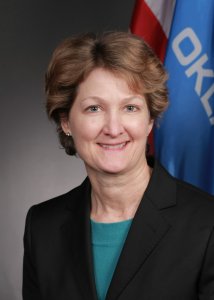
Swinton said what the school had done for two decades was teach, support and provide life-changing services for young people going through the juvenile justice system.
“That’s the thing I think has been missing in this whole thing. No one has criticized the education that these kids have received or the opportunities they were given with wraparound services for whatever their needs were. And no one else is doing that now,” Swinton said. “So, yes, we are going to actively pursue a new charter partner in the future because that need is there, and we have the skill set to deliver those services.
“We just got in a situation where the requirements that are set up for the State Department of Education to get the information as to whether we were doing it right wasn’t properly reported.”
Floyd agreed.
“The goal, from my view, for the school was to be able to take these young people who did not do well in the traditional school setting and to provide them with an environment and an educational setting where we could meet their needs,” Floyd said. “We kept growing and growing because there were kids that were not being allowed back into the traditional Oklahoma City Public Schools. They would come out to us.”
Swinton encouraged community members to support OKCPS and its Putnam Heights Academy that now serves former Seeworth students. She said she and her fellow board members would try to have “a closer relationship” with the OSDE if they were able to obtain a new charter in the future.
“That is my big regret — that we did not know we were so deficient in our reporting that it would cause us to lose the opportunity to serve these kids,” Swinton said.
Rodgers said it’s important for the public to learn what happened with Seeworth Academy so that future schools and future boards can avoid the same mistakes.
“Charter schools are public schools, and as a public school it’s not one person’s school,” Rodgers said. “It’s not Ms. Grigg’s school. It’s not the board’s school. It is the citizens’ school, and the board had a responsibility to provide meaningful oversight that is in the best interest of citizens and stakeholders.”
OKCPD incident report of alleged embezzlement at Seeworth Academy
https://nondoc.com/wp-content/uploads/2019/09/Seeworth-Report-OKCPD-5.pdf” height=”450px” download=”all”](Editor’s note: Archiebald Browne contributed to this story.)









